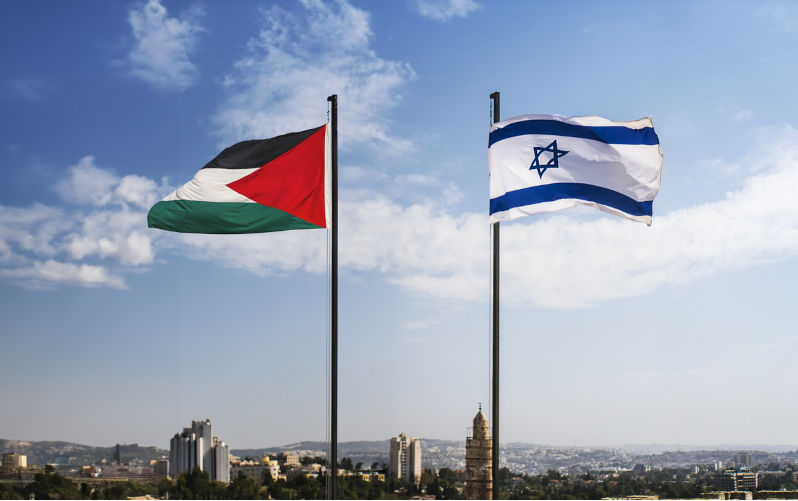On Israel, Zionism and being Jewish
October 22, 2025
No political conflict contains as many journalistic minefields as that between Israel and Palestine.
Even my opening sentence is contentious: some outlets refer to war between Israel and Hamas, others use terms such as genocide, which is hotly contested by defenders of Israel.
Overall the Nine newspapers, the ABC and SBS have done a reasonable job of covering a complex situation, although partisans on both sides are unhappy about some of their coverage. The Murdoch press, on the other hand, reads as if it is written in Jerusalem, and is striking for not giving space to any critics of Israel while accepting every claim of antisemitism as worthy of major news coverage.
A typical example of one-sidedness came from The Weekend Australian [paywalled] [18-19 October] which ran a front-page story on Jews who were moving to Israel to escape a sense of being persecuted in Australia – one émigré gave as his reason for leaving seeing signs proclaiming Free Palestine on university campuses. The story might have been more meaningful, had the reporters looked for Australian Palestinians and asked how they felt reading the constant attacks on them by sections of the media and politicians.
But even the best journalists can slip up: two examples from The Age [paywalled] [15 October]:
David Crowe writes: “If there is to be a peace, it can only come if Israel’s enemies accept its right to exist.” No mention, however, of the equal responsibility for Israel to recognise the rights of Palestinians.
And Michael Kozol refers to “decades of territorial conflict, centuries of sectarian violence and millennia of Jew hatred". Again, no mention of the legitimate claims of Palestinians to have been systematically dispossessed and ignored.
But the reference to “Jew hatred” points to one of the reasons journalists struggle to write about the conflict. The deliberate conflation of antisemitism and hostility to Israel, which is evident in the speeches of Prime Minister Benjamin Netanyahu and statements by major Jewish organisations, means it is not surprising that many people elide what are two quite different identities, namely that of being Jewish and that of being Israeli.
The NSW police have recently acknowledged that many reported examples of antisemitism were wrongly classified [ Chris Minns exaggerated the scale of antisemitism in NSW – and won't apologise], although a number of them clearly targeted support for Israel. But the conflation of antisemitism and hostility to Israel is widespread.
On the day the hostages were returned to Israel, an ABC news report covering a celebration in Melbourne’s Jewish community referred to “the Jewish Diaspora”. They could have been echoing Netanyahu, whose pronouncements often assume that all Jews not living in Israel are somehow part of the Israeli state.
As a Jew, I feel deeply disturbed by these assumptions. The one time I visited Israel it felt to me like a foreign country, and I was embarrassed by the reality that while I could claim citizenship, this was denied to Palestinians who had been forced from their homes by the creation and expansion of Israel.
Jewishness is an indefinite term, that covers both religious and cultural affiliations, and in the eyes of many defenders of Israel demands a commitment to Zionism, understood as the return to a homeland from which our people had been banished.
Many Jews would share that commitment, and the last two years have been heartbreaking for Jews who feel torn between tribal loyalty and horror at the carnage Israel has inflicted in Gaza and the continued police state in the West Bank. But there are increasing numbers of us for whom our Jewishness is neither religious nor national, but rather a sense of being bound historically to an identity that we share with others across the world.
Over the past two years, I have felt more Jewish but also less connected to Israel, a country that is based upon an ethnonationalist ethos that runs against the best humanist traditions of Judaism. No wonder that leaders such as Viktor Orban [Hungary] or Narendra Modi [India] are staunch supporters of Israel, given their own commitment to a patriotism based upon religious and ethnic homogeneity.
Yes, there are Jews for whom Zionism is an expression of communal solidarity and who support the idea of a genuinely multicultural Israel/Palestine, in which Jews and Arabs enjoy full equality. But this is a minority view among Jewish Israelis, who vote overwhelmingly for parties which reject any real moves towards meaningful recognition of a Palestinian identity.
The left claims that to attack Zionism is to criticise an ideology; the right asserts that it is disguised antisemitism. One can find examples to support both claims, which underlines just how difficult a terrain this has become. What is needed is greater clarity about the distinction between Jewishness as a religious/cultural identity and Israel as a nation state, increasingly dominated by a chauvinistic version of Zionism.
The views expressed in this article may or may not reflect those of Pearls and Irritations.


